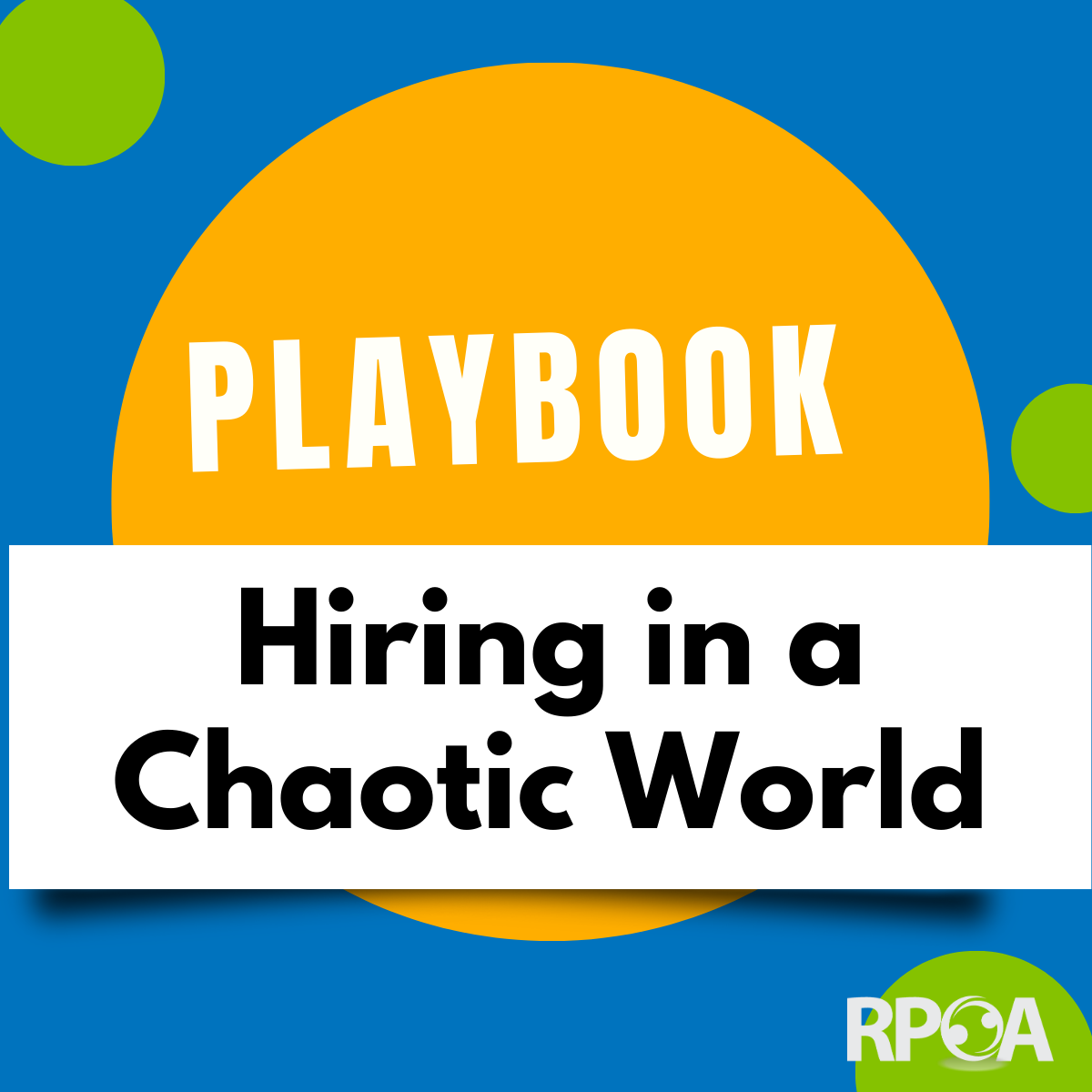
Talent acquisition leaders might be forced to downsize their recruiting team while hiring demands fluctuate unpredictably. Internal teams might struggle to balance bandwidth with quality as companies navigate volatile markets. The solution? Project-based recruitment process outsourcing (Project RPO) tailored to specific needs. Project RPO increased 4X between 2023 and 2024, according to the 2025 RPO Trends Report. Organizations find that this targeted approach addresses immediate talent gaps without committing to full-scale outsourcing.
Jamie Minier, President at NXTThing RPO, discusses why companies choose project-based recruitment and how it delivers strategic value in this RPOA interview. Her insights reveal how businesses use specialized expertise through focused partnerships. This post features her perspective as part of the RPOA's Talent Leader Council series.
RPOA: What is Project RPO?
Minier: Project RPO represents a limited-scope recruitment process outsourcing engagement targeted toward specific recruiting functions, roles, geographies, or time periods. This differs from enterprise RPO, which spans all recruiting functions across an organization. Project RPO delivers targeted recruitment support without requiring a full outsourcing commitment.
Project-based RPO offers organizations a "try-before-you-buy" approach. Companies reluctant to outsource their entire recruitment function can test RPO services in a controlled environment. This cautious approach helps organizations experiencing reduced internal teams still meet periods of high hiring demand.
Q: How do you explain that increase in demand?
The surge relates directly to economic changes, forcing organizations to shrink internal recruiting teams. Smaller teams must find alternative solutions to handle workloads. The word "outsourcing" sometimes creates hesitation, but project-based RPO provides a middle ground.
Companies recognize they need assistance without fully outsourcing recruitment functions. Teams that once operated with substantial resources now function with reduced capacity. Project-based RPO fills gaps while allowing organizations to maintain control over their core recruitment strategy and culture.
Q: Can you talk to us about the flexibility that Project RPO provides for employers?
This flexible option gives organizations that "try-before-buy" opportunity. Companies can outsource specific functions instead of their entire recruitment operation. Many organizations start with project-based RPO to test the approach before expanding.
Organizations might have uncertainty about outsourcing from regional, functional, or seasonal perspectives. Project RPO allows them to experiment with outsourcing in controlled environments. This flexibility proves particularly valuable when internal resources cannot scale quickly enough to meet sudden hiring demands.
Q: How about common use cases for Project RPO?
Seasonal hiring represents a primary use case, especially for frontline positions. Organizations can employ project RPO for specific high-volume periods without maintaining year-round recruiting capacity.
Acquisitions create another common scenario. Companies maintain their primary talent team with the main business while using project RPO to handle acquisition-related hiring.
Class hiring initiatives benefit from project RPO, particularly when organizations need to bring on multiple similar roles simultaneously. IT transformation projects and department restructuring during cost containment periods also present ideal project RPO opportunities.
Organizations whose internal teams struggle with specific recruiting challenges often turn to project RPO for targeted assistance. The approach varies by organization, requiring providers to listen carefully and develop customized solutions.
Q: Are there particular industries or organizations where project RPO might work best?
The current economic climate drives more project-based RPO in professional spaces. Teams contract, leaving gaps in both capacity and capabilities. Project RPO helps these organizations manage REQ volumes without rebuilding full internal teams.
Project RPO spans all vertical markets rather than concentrating on specific industries. The determining factor involves organizational state and objectives. Some implementations focus on specific functions like sourcing or screening rather than end-to-end recruitment, creating further flexibility.
Q: How about AI and automation... Can you speak about how they can enhance the effectiveness of project RPO?
Automation enhances both speed and candidate experience across recruitment processes. Project RPO clients seek not just assistance but advanced approaches that attract high-quality candidates through innovative methods.
AI and automation technologies improve frontend processes where appropriate while enhancing candidate experiences. Some implementations create "62-second processes," allowing candidates to move quickly from application to scheduling to potential offers.
Most employers look to RPO partners to provide recruitment technology rather than investing internally. Project RPO creates opportunities to experience these partnerships and innovations without long-term commitments.
Q: How about data? Is that important as well for a project RPO?
Data represents a critical component because project implementations require clear proof of effectiveness. Organizations testing RPO solutions need measurable outcomes showing the approach works.
Effective project RPO requires establishing key metrics upfront, tracking progress consistently, and measuring final results. This becomes particularly important when replacing existing providers, where improvements in quality, cycle time, speed, and turnover must demonstrate clear value.
Q: How can project RPO help mitigate hiring risks during economic uncertainty?
Project RPO provides scalability without long-term commitments. Organizations avoid bringing on full-time recruiters or multi-year outsourcing arrangements while still accessing expert recruitment capabilities.
Experienced RPO providers maintain "burst capacity" (23-25% at NXTThing RPO), allowing immediate project scaling. Clients benefit from expertise, speed, and results without fixed overhead costs or extended commitments.
This approach protects organizations from overreactions during talent fluctuations - neither overwhelming existing teams nor overhiring for temporary needs.
Q: How do organizations measure ROI for Project RPO?
ROI metrics vary based on client priorities. Some organizations prioritize quality, while others focus on speed or turnover reduction. Successful implementations often deliver substantial improvements, with some clients experiencing a 20% turnover reduction.
The key involves determining which metrics matter most to each client and building measurement approaches aligned with those priorities. Demonstrating clear value becomes particularly important for first-time RPO users who need confirmation that the investment delivers meaningful returns.
Q: When does project RPO make sense for an employer?
Organizations should first determine their baseline recruiting requirements - how many recruiters they need for normalized operations. Project RPO makes sense when additional demands exceed this baseline through new business initiatives, site launches, or seasonal requirements.
Companies must decide whether these additional needs warrant full-time staff additions or if they need assistance with specific parts of the recruitment process. Project RPO provides temporary capacity that scales up and down with organizational needs.
Ready to explore if Project RPO matches your recruitment needs? Visit the iCoCo Marketplace now to connect with trusted, RPO companies who offer tailored Project RPO solutions for your organization's unique challenges.
Q: What is your forecast for Project RPO demand in the next three to five years?
Project RPO will continue growing beyond industry average rates (4-5%). Recent months show a resurgence in both frontline and professional spaces, indicating strong growth potential over the next 12-18 months.
First-generation RPO users drive much of this adoption, testing the approach before expanding. Many project relationships evolve into broader service engagements, including enterprise RPO and additional recruitment services like marketing and technology.
The industry continues moving toward more strategic approaches beyond transactional hiring. Future project RPO will increasingly incorporate technology solutions, data analysis, strategic workforce planning, and traditional recruitment activities.
For more insights from other Talent Leader Council contributors, check out the RPOA Voice blog, which features interviews with top talent acquisition experts.














